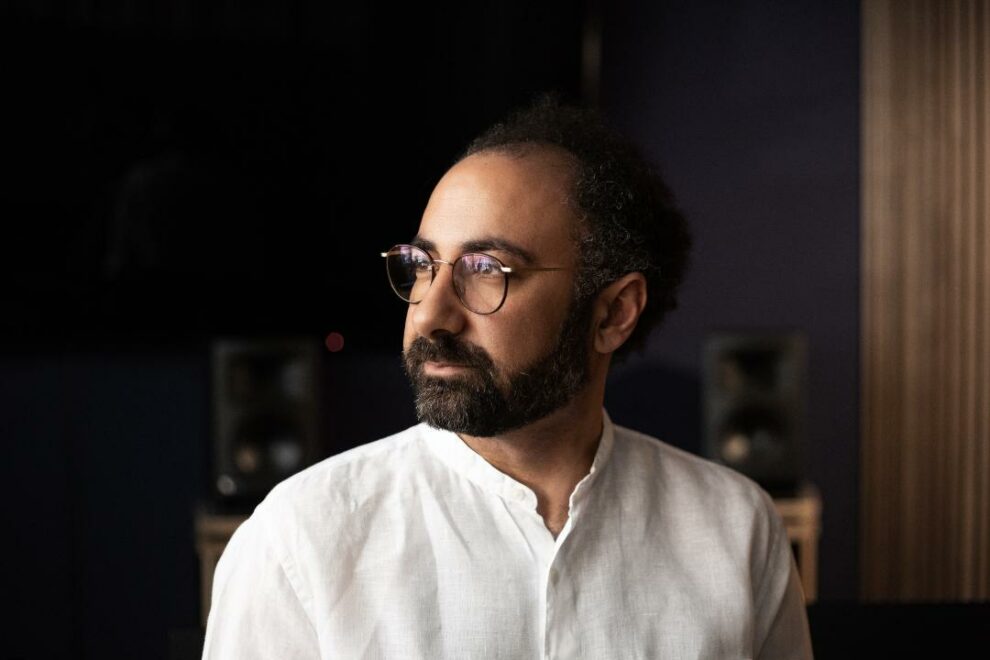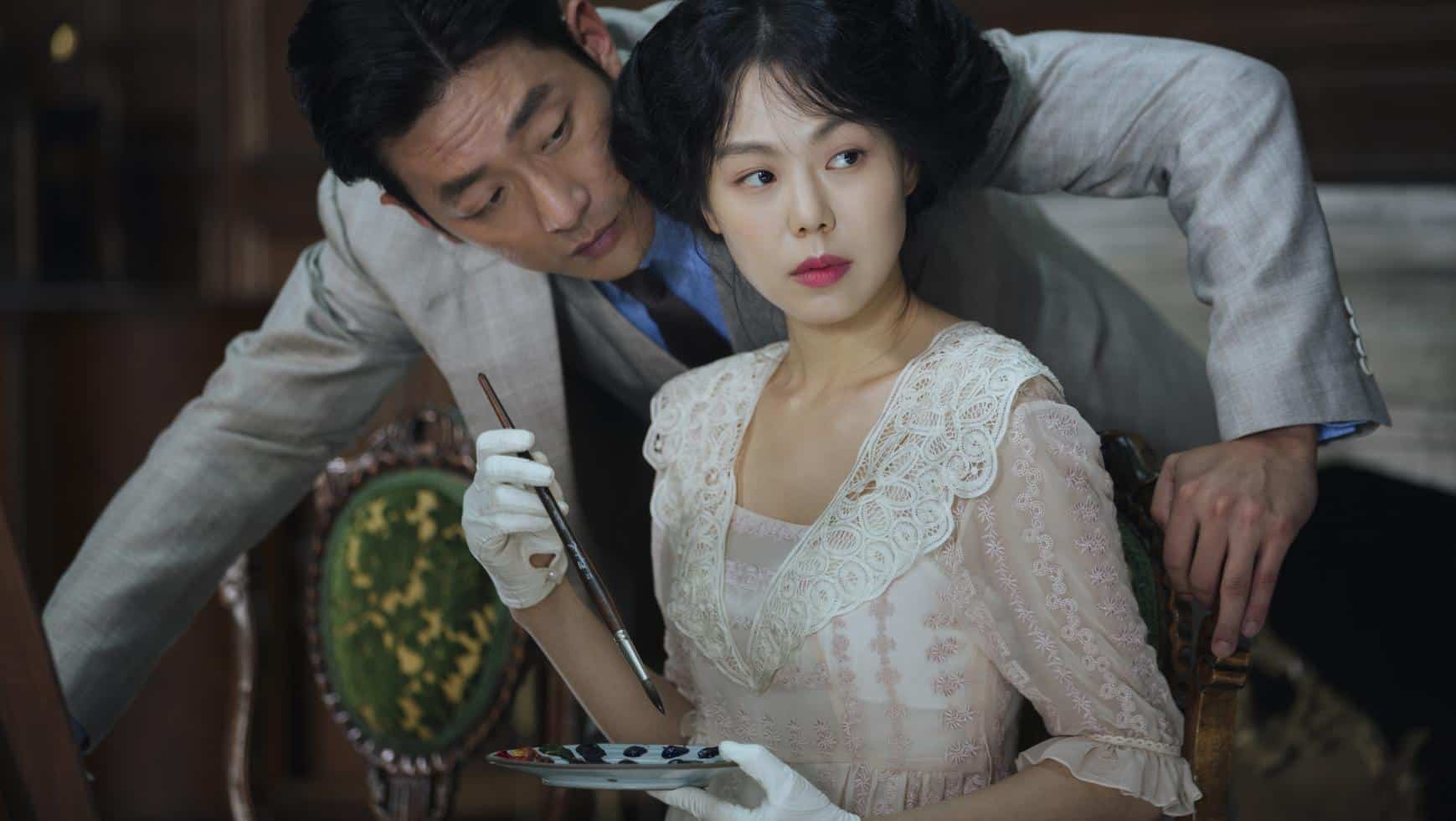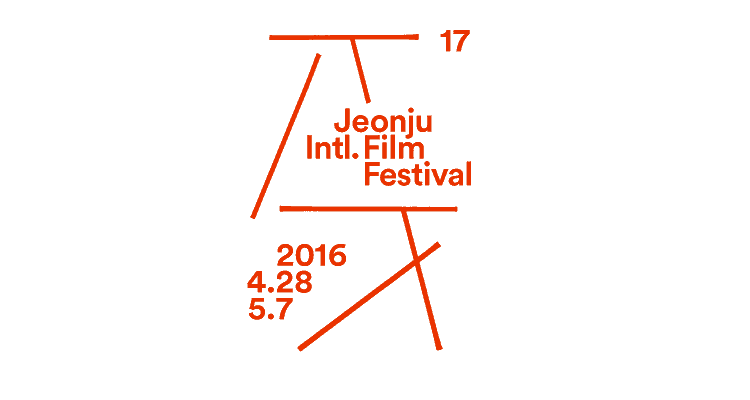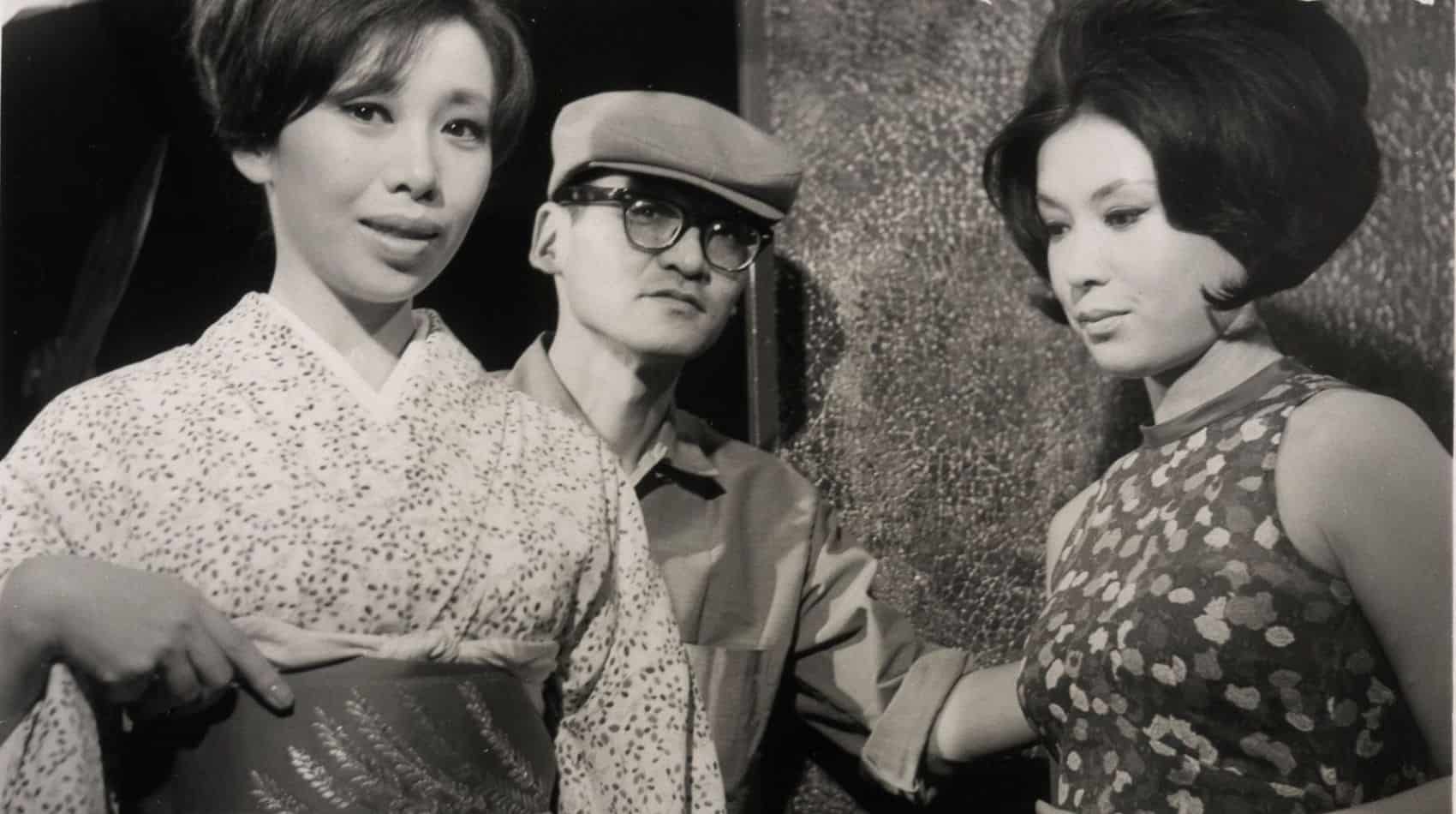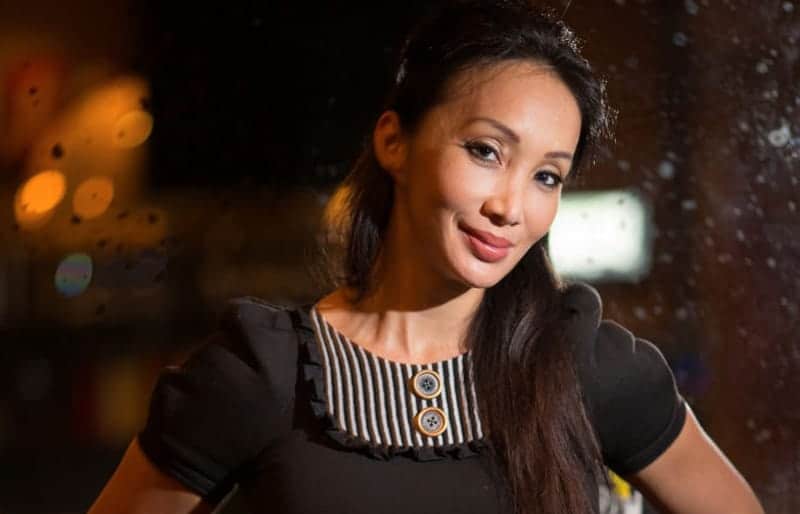The 57th edition of Karlovy Vary International film festival has a number of focuses and one special titled “Another Birth. Iranian Cinema Here and Now”, but Behrooz Karamizade's debut feature “Empty Nets” was selected to compete for The Crystal Globe. This muliti-layered drama is set on the northern Caspian Sea coast, and stars the brilliant Sadaf Asgai as Narges (recently seen in Ali Asgari & Alireza Khatami's Un Certain Regard contender “Terrestrial Verses”) and the charismatic Hamid Reza-Abbasi as Amir.
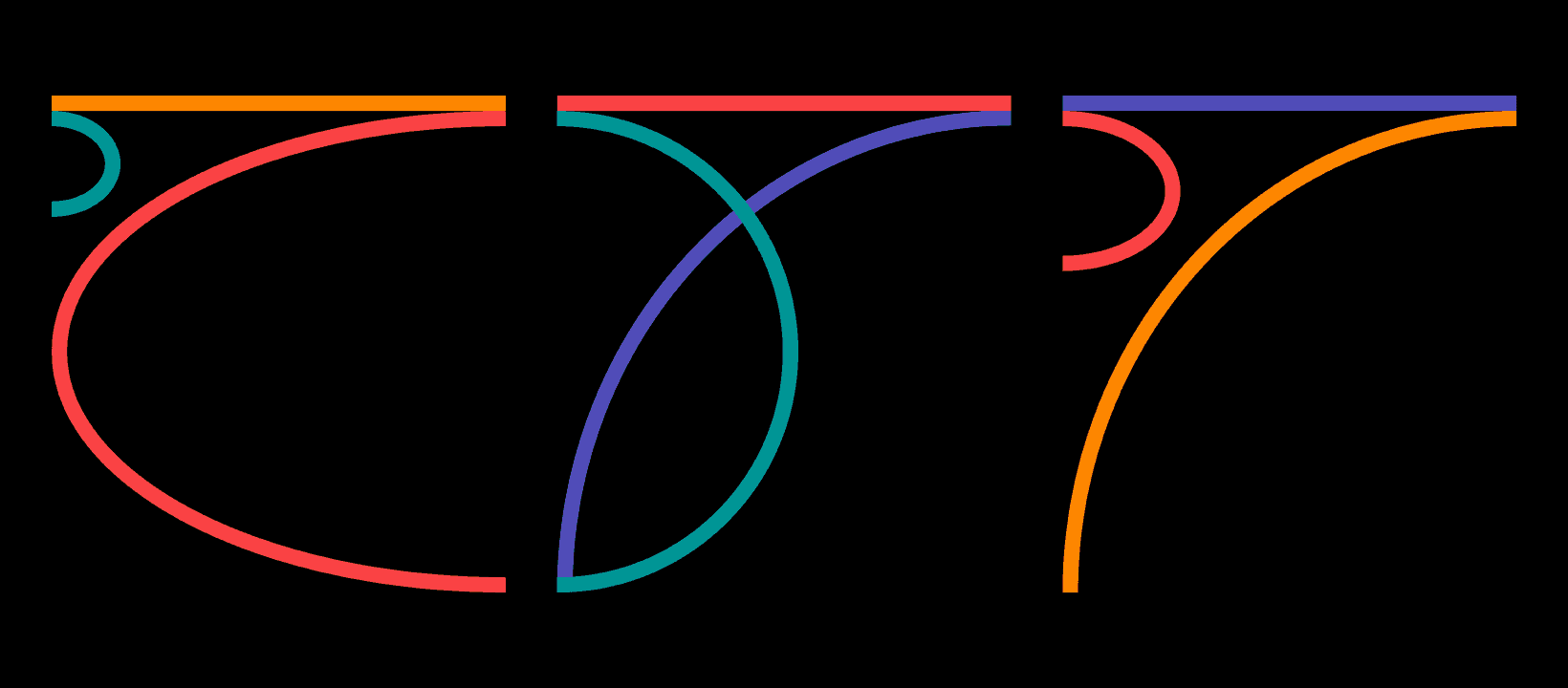
Karamizade's script revolves around a young man from a working class family whose wish to propose to his big love becomes sabotaged by a number of impediments. Narges comes from a wealthy, influential family with high expectations of a future son-in-law. He should be successfull, respected and cultured, none of which the simple and good-hearted Amir is. At the beginning, the young couple's encounters are unburdened by class differences, but when a potential suitor from Tehran appears, Amir realizes that unless he comes to a large amount of money soon, his dreams of marrying Narges will shatter. Desperate to get there as soon as possible, he gets involved in illegal activities.
“Empty Nets” had its international premiere in Karlovy Vary, where Asian Movie Pulse had the opportunity to sit down with the director and discuss his inspiration for the movie, problems that burden the youth of Iran, and his wish to bring many topics to the table in just 101 minutes of film's runtime.
Let's start with a basic question regarding your choice to shoot the film in Iran, concerning the central part of the story that focuses on two young people fighting for their love. Although the setting makes the rest of the plot richer, it also comes with the limitations of depicting intimacy
The decision to shoot the film in Iran was crucial, because I wanted to give a deeper insight into our society. I didn't want to make a film about Iran, but a film from Iran. For me as a director, the authenticity and credibility in front of the camera are very important. Likewise, I wanted to shoot with real fishermen, in a real fishing area, to show the real, existing world. So, basically, the fishing business in the movie that you can see, consists of professional actors and real-life fishermen. Of course, the main guy Rahim who recruits the working force is one of the finest actors in the country – Ali Bagheri (“The Wastetown” 2022, “The Wasteland” 2020). Also excellent is Behzad Dorani (“The Wind Will Carry Us” 1999).
In my film I am speaking about problems that influence the lives of local people. I didn't want to present things black and white, but to show many shades of gray, because after the first idea about the film had formed itself, I burned to make a movie about people who feel as trapped as fish caught in net. “Fish” are young people who wriggle to break free. And in order to achieve that effect, the film had to be shot in Iran.
Where exactly did you shoot “Empty Nets”?
The whole movie was shot on the Caspian Sea coast, in Rasht and Bandar-e Anzali, two cities on the north. The fishing scenes were also shot in a real, operating fishery. We combined shooting with their daily work, but some of the scenes were naturally completely staged, and separately filmed.
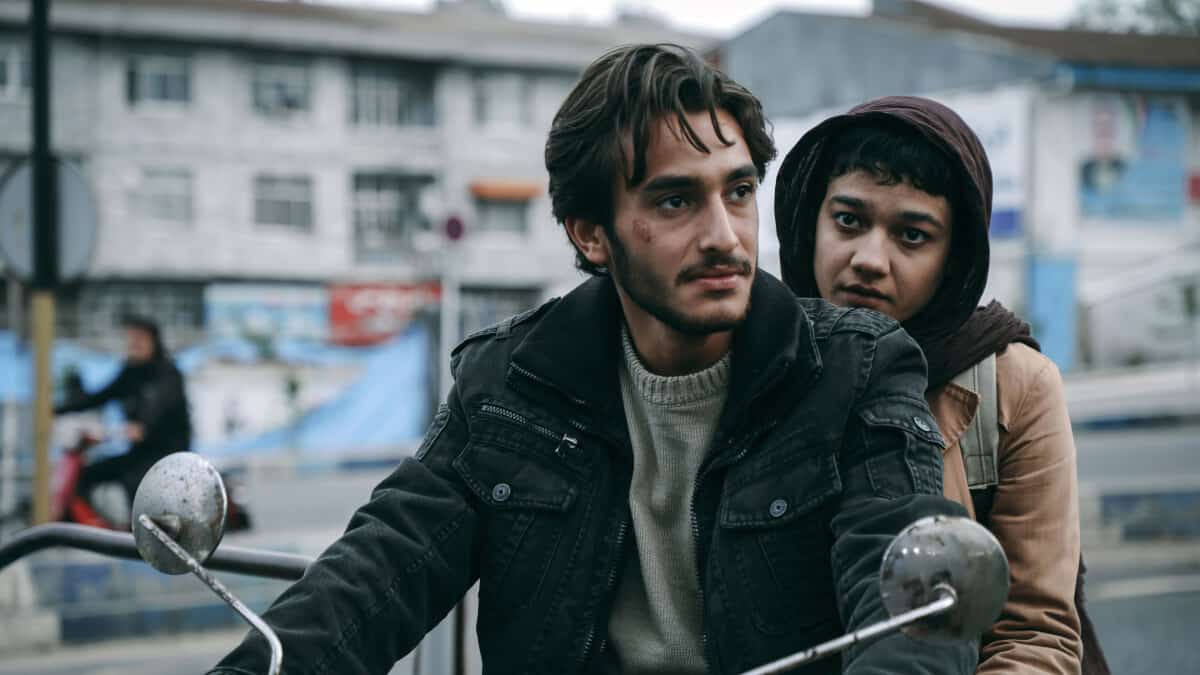
It would be interesting to know something about your casting process. Sadaf Asgai who plays Narges is an established actress, but Hamid Reza Abbasi, her screen love interest is a fresh-faced newcomer.
It was clear to me almost from the start that I wanted to cast Sadaf as Narges. I knew her films very well, and I liked her acting skills. She is well-established in Iran. She was ideal, and I didn't have to look elsewhere. On the contrary, the casting process for Amir lasted several months. I wanted to have someone who hasn't played a big role before, to keep the spark of unspoiled innnocence and naivety alive. I needed this for the first part of the film when Amir is still naive to believe that hard work pays off, to be able to develop it in to soemthing else over the course of time. To be able to achieve that, I had to make a big casting, and search in small theatre troupes and film schools all over the place, also in acting workshop until we finally found the person that had it all, and that was Hamid Reza Abbasi.
For me, the side story about the before-mentioned entrapment of young people takes over the actual central plot. The struggle we are witnessing is attention-grabbing. So, what is older – the chicken or the egg? Where did you start?
I've been travelling across Iran for quite some time, even though I am based in Germany. I love visiting my relatives. It didn't take me long to realize that the young generations are facing the biggest problems, and they are robbed of prospects. Even if they are well educated and have a pretty good idea about what they want, it is difficult for them to follow their dreams because of the many obstacles: inflation, sanctions, societal restrictions. I was thinking about all that, and also about the fact that young couples can not meet just like that, they have to get married first to be ale to spend time together. It's an interesting starting point: young people are pushed into marriage at a very early age. You have to immediately get married to someone you love without time to get to know each other. That pressure often destroys relationships. Iran has a very high divorce rate, and I think that this is related to the pressure factor.
Speaking of which, there is a big question of a high dowry that Amir somehow has to pay, which pushes him to betray his own moral values.
The dowry wasn't a bad thing in times when it was introduced, because it meant financial backup for women in case the marriage was dissolved. Unfortunately, it evolved into something else with time, and it became all about money. The higher the sum parents demand for their daughter, there is a higher risk that money will come between the spouses. I wanted to address that by showing how pure and sincere Amir's and Narges' love was at the beginning, but as soon as money became an issue, the more distant they became, until their relationship was no more. Narges breaks off the relationship because on the one hand, she can not meet her parents' expectations, and on the other, because Amir became criminal in order to scrape the dowry money. I wanted to show how money destroys love.
Check also this article
There is a side story about Amir's friendship with Omid, a young intellectual on the run from the police.
For me it was important that the lead character gets influenced by multiple people. He is in the focus of the story, and everyone else presents the universe around him: his mother, Narges, his friends, but also the poachers he joins at a later instance, and his former boss who cold-heartedly fired him. One of the most important people who help him to come to senses is Omid (Keyvan Mohammadi). They meet in the fishery, and they even share a barrack together which brings them closer, and they eventually become good friends. Once the confidence gets established, Omid confides in Amir, and his story is important because it shows another level of problems that young people are facing in Iran. The same goes for Narges, who is a young woman yearning to be free. Although she comes from a wealthy, and seemingly open-minded family, her parents eventually chose the traditional way. Still, unlike many other girls her age, she is going out, meeting friends in cafés and so on. Amir represents the working class. Omid, on the other hand represents a group of Iranian intellectuals who were trying to contribute to positive changes, but were stuck. He is disillusioned, and wants to leave for Europe and start a new life. All those people have a strong influence on Amir. It was important to me find someone more experienced to bring the message across, and that was Omid who has no future in Iran. Besides Amir's mother, he is the only person with the moral authority, but not judgmental because he understands and empathizes.
Poaching becomes one of the binding elements between different layers of the narrative, and we got a small glimpse at the caviar black market.
To me, nature represents love and purity, but it also has its brutal side which Darwin called “survival of the fittest”. That is a phrase which could describe the Iranian society, or many others that find themselves in the abyss. One disregards the needs of the others, and has to fight for oneself. And then we have the aspect of how people are dealing with nature. Sturgeon is an endangered species, and it is forbidden to fish it, but its caviar is a delicacy many restaurants are ready to pay well for. At the same time, I didn't want to moralize, and I showed that some of the poachers had no other way to survive than to do exactly that.
Where did the idea about betting on fishermen who compete who is going to catch an eel barehanded come from? Is that a thing?
An “eel fight” does not exist. I invented it, and it is my contribution to the story about life spent in the fishery barracks. I was looking for an element to create a kind initiation ritual for Amir, to make him accepted in the inner circle of fishery owners, the way it usually happens in criminal organizations. But first, I had to think about what makes him special, and what he is particularly good at. The answer was very simple – swimming, which also makes him interesting for poachers who need people to make clean the nets underwater. I wasn't interested in classical fights often depicted in films, and then I accidentally ran into a YouTube video showing kids in a plastic pool trying to catch an eel. We constructed a pool to create such “arena”.
How did you shoot underwater scenes?
All of them were shot in a swimming pool. The Caspian Sea is very rough, and it's risky to do anything in it. Likewise, the dangerous trip across the sea was done in a studio and digitally manipulated. I was very lucky to collaborate with Ashkan Ashkani, one of the best cinematographers in Iran who became prominent through his work on Mohammad Rasoulof's movies.


